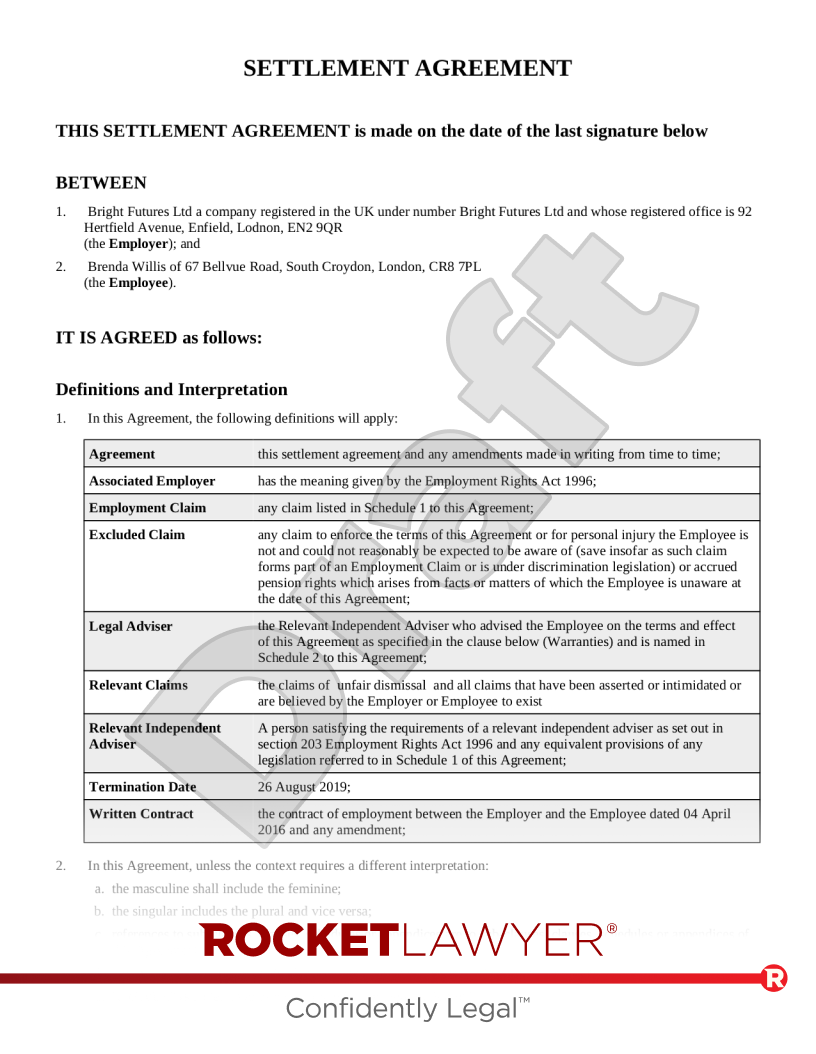What is an Employment Tribunal?
Employment law disputes which cannot be resolved in the workplace or through conciliation may eventually end up in the Employment Tribunal (ET). Cases are normally heard by a panel of three people: a legally qualified Employment Judge, a person representing the employer’s organisation and a person representing the employee’s organisation. Although they are less formal than courts, ET decisions are legally binding and must be followed by both employer and employee. Some employment disputes that are heard in the ET can concern unfair dismissals, redundancy payments, discrimination or harassment.
What is the ACAS Early Conciliation Service?
Before a claim is lodged with the Employment Tribunal, it’s first necessary to submit an Early Conciliation notification form to ACAS. This free process is designed to give the employer and employee a chance to resolve their dispute by means of conciliation. If both parties agree to try this route, the claim will be passed to an ACAS conciliator. Resolving disputes through an independent conciliator is usually faster, cheaper and less stressful than going to the ET. However if both parties do not agree to try early conciliation - or if they try it but it fails to resolve the issue - ACAS will send out an early conciliation certificate. This certificate can then be used to lodge the claim at the ET.
How are claims lodged and how do they proceed?
Employment Tribunal claims can be submitted online, by post or telephone. Time limits need to be observed. You do not have to pay a fee to make a claim to the Employment Tribunal, even if it says so on the form. Once a claim has been made, the other party has to reply in writing within 28 days, setting out their arguments. A preliminary hearing may be held, to decide on practicalities (such as time and date of the full hearing) and whether part or all of the claim can go ahead. Documents need to be arranged and exchanged prior to the full hearing and witnesses organised. Note that witness statements are normally not used in Scotland. The hearing will then take place and both employee and employer will submit their arguments. The ET will either come to a decision immediately or it may take a few days or weeks to be notified of their ruling.
What happens if you’re unhappy at the outcome of the case?
An ET decision can be appealed, in the first instance to the Employment Appeal Tribunal (EAT), which may dismiss the appeal or send it back to the ET for reconsideration. If the judgement was sent to you without reason, you must make sure to ask for reasons within 14 days. You must then put in your appeal within 42 days of the date the reasons for the judgement were sent to you. These reasons can include the release of new evidence, procedural errors or you weren’t told about the hearing. Further appeals can also be made to the Court of Appeal and Supreme Court.
What are the time limits?
In general, ET claims must be submitted within three months of the earlier date of either:
-
the date on which employment ceased, or
-
the date on which the incident/issue occurred
The time limit for redundancy pay and equal pay cases is six months.
The time limit is not affected by the mandatory early conciliation procedure. The period of time between the Early Conciliation notification being submitted and the certificate being returned by ACAS does not count towards these time limits. Effectively the conciliation procedure ‘stops the clock’ on the time limit.
Financial penalties for employers who lose at tribunal
The ET will be able to order the employer to pay a penalty on top of any compensation or award made to the employee. If the ET finds any breach of statutory employment rights the employer will be made to pay the state.
Should I settle a claim?
It’s generally cheaper for employers to settle a claim rather than go to an employment tribunal. For more information read Settlement agreements with employees and try out our Settlement agreement. To discuss your particular situation, Ask a lawyer.




